
"Summer Holiday" is a song recorded by Cliff Richard and the Shadows, written by rhythm guitarist Bruce Welch and drummer Brian Bennett. It is taken from the film of the same name, and was released as the second single from the film in February 1963. It went to number one in the UK Singles Chart for a total of two weeks. After that, the Shadows' instrumental "Foot Tapper"—also from the same film—took over the top spot for one week, before "Summer Holiday" returned to the top spot for one further week. The track is one of Richard's best known titles and it remains a staple of his live shows. It was one of six hits Richard performed at his spontaneous gig at the 1996 Wimbledon Championships when rain stopped the tennis.
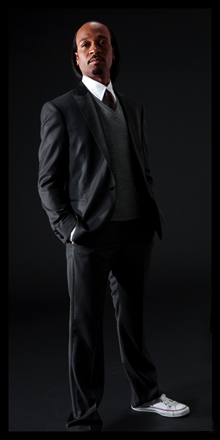
Thaddis Laphonia "Kuk" Harrell is an American songwriter, vocal producer, arranger and engineer. He was a member of a songwriting–production team composed of himself, Christopher "Tricky" Stewart and Terius "The-Dream" Nash. In 2011, Kuk Harrell and partner Tricky Stewart joined the ranks of Fox's American Idol along with music mogul Jimmy Iovine, producing many of the songs performed on television by the contestants and released via iTunes. 2011 marked the highly anticipated return of Jennifer Lopez and her album LOVE? in which Kuk served as Album Vocal Producer. Earning his fourth Grammy for the vocal production of Rihanna's No. 1 Billboard Single "Only Girl ", Harrell is also the vocal producer and co-writer of Rihanna's Grammy-winning single "Umbrella". A composer and engineer on Beyoncé's chart topping "Single Ladies " from the album I Am... Sasha Fierce, he is also vocal producer and engineer of the Diane Warren-penned "I Was Here" from Beyoncé's 2011 album 4. He also produced the majority of the vocals on Mary J. Blige's Platinum album Growing Pains, which won the 2008 Grammy for Best Contemporary R&B Album. The first single from Growing Pains, "Just Fine", earned a Grammy nomination for best R&B vocal performance in 2007.
"Qué Te Pasa" is a dance song written by J.R. Florez and Gian Pietro DiFelissati, produced by Felissatti and performed by Mexican singer Yuri. It was released in 1987 as the first single from her seventh studio album Aire (1987), and became her first number-one single in the Billboard Hot Latin Tracks chart and won the Lo Nuestro Award for Pop Song of the Year in 1989.
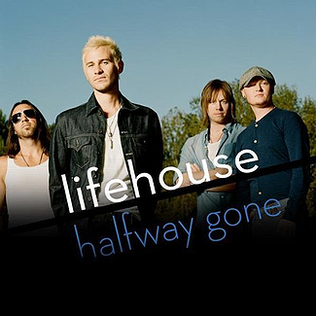
"Halfway Gone" is a song by American band Lifehouse. It is the first single released from their fifth studio album, Smoke & Mirrors (2010). It was first released via digital download in the United States and Canada on October 26, 2009. It was then solicited to mainstream radio on January 12, 2010. Several remixes of the song were later released on iTunes on April 6, 2010 in an album called Halfway Gone Remixes. The song was a commercial success, charting in Canada, the United States, Australia, Austria, Belgium, Germany, the Netherlands, and New Zealand. The accompanying music video portrays Lifehouse lead singer Jason Wade singing most of the lyrics in a park, and also features band cohorts and various people lip-syncing the lyrics as the song plays.
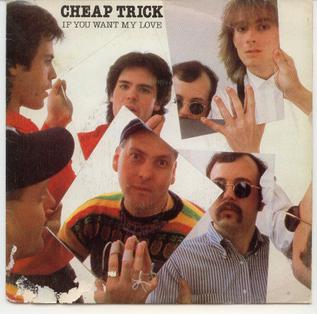
"If You Want My Love" is a song by American rock band Cheap Trick, released in 1982 as the lead single from their sixth studio album One on One. It was written by guitarist Rick Nielsen and produced by Roy Thomas Baker. It reached number 45 on the US Billboard Hot 100 and number 2 on the Australian Kent Music Report chart.

"He Loves Me 2" is a 1999 song by the musician CeCe Peniston. This single was to be originally included on the singer's album, which was not released. A remix of the song, Paul Johnson's Dancefloor Dub, entered the Billboard Hot Dance Music/Club Play chart, where it peaked at number twenty-four in November 1999, after being classified number five as the Billboard Hot Dance Breakouts in the Club Play category.
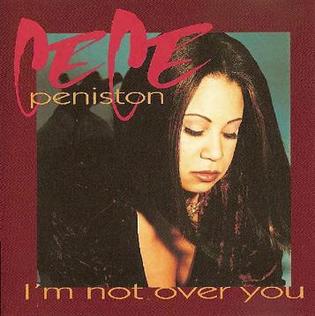
"I'm Not Over You" is a song by American singer-songwriter and former beauty queen CeCe Peniston, originally recorded for her second album, Thought 'Ya Knew (1994), which was released on A&M Records. The single achieved number two on the Billboard Dance Club Songs chart, and number ten on the Billboard Hot R&B/Hip-Hop Songs chart. On the Billboard Hot 100, the song charted at number forty-one. The B-side of the single included "Searchin'", which was previously released only for promotional purposes.

"Taboo" is the second single from Don Omar's collaborative album Meet the Orphans released on January 24, 2011 through Universal Latino. The song is re-adapted version from Los Kjarkas's song "Llorando se fue" most commonly known for its use in Kaoma's 1989 hit single "Lambada" fused with Latin beats. The song peaked at number one on the Billboard Latin Songs, becoming his third number one single on the chart.

"Here We Go Again" is a country music standard written by Don Lanier and Red Steagall that first became notable as a rhythm and blues single by Ray Charles from his 1967 album Ray Charles Invites You to Listen. It was produced by Joe Adams for ABC Records/Tangerine Records. To date, this version of the song has been the biggest commercial success, spending twelve consecutive weeks on the US Billboard Hot 100 chart, peaking at number 15.
Zakiya A. Munnerlyn is a former American R&B/soul singer who released a self-titled studio album on DV8 Records in 1997. Two singles from the album, "Love Like Mine" and "My Love Won't Fade Away", entered Billboard's Hot R&B/Hip-Hop Songs chart.
"It'll Be Me" is a song written by Jack Clement, first released in April 1957 by Jerry Lee Lewis, as B-side to his single "Whole Lot of Shakin' Going On".
"Joe Hill", also known as "I Dreamed I Saw Joe Hill Last Night", is a folk song named after labor activist Joe Hill, which was originally written in poem by Alfred Hayes and composed into music by Earl Robinson in 1936. The song recounts a dream in which Joe Hill appears and claims he never died despite being framed for murder and shot by "the copper bosses." He tells the dreamer, “From San Diego up to Maine / In every mine and mill / Where workers strike and organize / It’s there you’ll find Joe Hill."
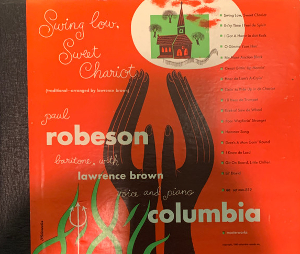
Swing Low, Sweet Chariot is a studio album by Paul Robeson, released in 1949 on Columbia Masterworks. Robeson was accompanied on piano by Lawrence Brown, who also provided additional vocals on some of the tracks.

Paul Robeson at Carnegie Hall is a live album by Paul Robeson, released in 1959 on Vanguard Records.

Spirituals is a studio album by Paul Robeson, recorded in 1945 and released in 1946 on Columbia Masterworks. Robeson was accompanied by Lawrence Brown at the piano.
The following is the discography of American singer Paul Robeson.

Paul Robeson: Favorite Songs is a studio album by Paul Robeson, released on Monitor in 1959.












